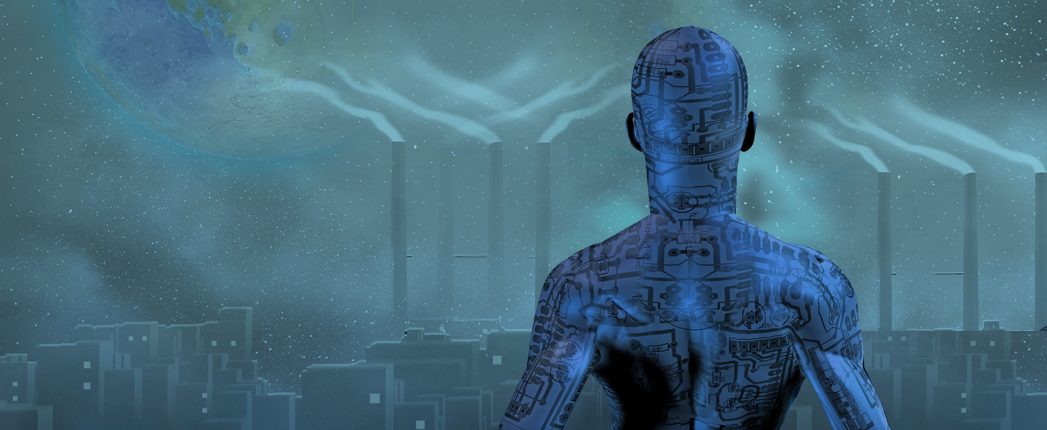
For more than 25 years, Lubes’n’Greases has been providing information to the global lubricant and grease industry. In that time, it has become a trusted source for companies that want to ensure they stay on top of the key trends impacting the industry.
As lubricant companies must move fast to stay ahead of the growing call for sustainable operations from consumers, investors and legislators, Lubes’n’Greases was also quick to keep its subscribers tuned in to how sustainability affects their businesses.
To do that, it created Sustainability InSite and the Sustainability Blog at the beginning of 2021, and asked me to join as a contributing editor and sustainability expert, which I thankfully did with pleasure. In addition, I am also consulting them on their journey as the first lubricant industry information and news provider to become carbon neutral.
Those of you who have followed my writing for Lubes’n’Greases in this year will have noticed a few things. I love making references to popular culture and numerical coincidences and connecting them with the sustainability topic of the moment. In my contributions to Sustainability InSite and the Sustainability Blog over the past months, I’ve referenced movies, such as the 25th James Bond and Citizen Kane, and songs by Tom Jones and Coldplay.
This article is my 25th piece on sustainability for Lubes’n’Greases in 2021 – so in the year, 25! Consequently, and to round off 2021, my cultural reference will be “In the Year 2525”, the 1969 folk rock song by Zager and Evans. It describes an apocalyptic future where humans are enslaved by technology but are destroying the planet. It has a fundamental ecological message that we have taken everything from Mother Earth without giving anything back.
The song predicts an ecological judgment day five millennia into the future. I think that in reality, if we do not do what needs to be done now, this day of reckoning will come much sooner, maybe within the next generation or two.
So where do we stand with sustainable development at the end of this year, in general and regarding the chemical and lubricants industry? Let us first take a look at the general developments.
The Sustainable Development Report (SDR) is the first worldwide study to assess progress toward achieving the United Nations 17 Sustainable Development Goals (SDGs) on the country level. The SDR can be used by governments and civil society to identify priorities for action, understand key implementation challenges, track progress, ensure accountability and identify gaps that need to be closed in order to achieve the SDGs by 2030.
According to the Europe SDR 2021, released on December 14, ending the pandemic is a prerequisite for restoring and accelerating progress on the SDGs, both in Europe and globally. It is encouraging that Europe leads the 2021 SDG global rankings, with all countries in the top 20, except Japan, being European.
“With the adoption of the European Green Deal and related legislation including the climate law and the fit-for-55 package, Europe was the first continent to announce a bold commitment to climate-neutrality by mid-century. In doing so, Europe acts as a global standard-setter” according to the Europe SDR. “The EU should continue to play a leadership role in implementing the goals internally and internationally in the run-up to the SDG Summit in September 2023 and beyond,” the report continues and recommends that Europe leads through diplomacy focused on the Green Deal and SDGs, especially with China and Africa, which it regards as “critical to advancing key multilateral processes towards achieving the SDGs.”
How about sustainable development in the chemical sector, to which the lubricants industry belongs? In March 2020, Chemie³, a joint sustainability initiative set up by the German Chemical Industry Association, the Mining, Chemical and Energy Industrial Union and the German Federation of Chemical Employers’ Associations, published the SDG Navigator for Companies in the Chemical Industry. The navigator is a guide aimed at medium-sized chemical companies that want to address the SDGs in their operations or want to review existing practice. It is especially useful for those companies that have limited experience of integrating the 17 SDGs.
I highlighted the commitment to the SDGs of 10 selected players in the lubricant industry, including suppliers, and how they approach and prioritize the SDGs in a previous article. (I advise and consult one of these 10 companies on sustainability and integrating the SDGs into business. I used the SDG Navigator as tool in the way described above. Thus, I can highly recommend this approach to be implemented in a lubricant company, with the supporting guidance of a sustainability expert.)
According to the “Sustainability Progress Update 2021” by the European Chemical Industry Council (Cefic), published in October this year, the focus of the chemical industry in Europe needs to be on a number of areas.
The first is taking circularity to the next level, in particular circular carbon (“Sustainable Carbon Cycles”). This is a principle challenge for an industry that relies on carbon as a fundamental raw material. The solution lies in expansion of rerefining, biobased feedstocks and innovation.
The next is developing the indicators that help drive and monitor the industry’s progress toward the SDGs in general and the European Green Deal in particular. The Green Deal could alter lubricants supply in Europe by incentivizing longer use and using base stocks from countries with a lower carbon footprint. Lubricant producers can embrace the deal by developing products with lower carbon footprints but also ones that increase the sustainability of the machinery they fill.
Thirdly, developing views on Safe and Sustainable-by-Design, which is an initiative to reach zero pollution by the chemicals industry, and taking these views forward to contribute to the objectives of the EU Green Deal. It builds upon the foundations of REACH and the CLP by adding incentives for chemicals that are considered safe and sustainable.
Lastly, increasing capacity for dialogue and outreach. A still valid perception of the lubricants industry is its lack of visibility in the public consciousness and the part its products play in the reduction of energy use by mitigating friction, corrosion and wear.
Cefic’s portfolio of Sustainable Development Indicators (SDIs) will reflect how the chemicals sector is contributing to the transition toward a safe, resource efficient and circular economy within a climate-neutral Europe.
The SDIs are organised around the four sustainability focus areas of Cefic’s Sustainability Charter: create, conserve, connect and care. By connecting the measurement tools to the charter, Cefic aims to drive progress in those four areas and encourage the industry to take necessary action to improve performance. This is a clear signal not only to the overall chemical sector, but also to the lubricants industry.
Back to the general SDGs. As planned, the SDG indicator framework was comprehensively reviewed at the 51st session of the United Nations Statistical Commission in 2020, and it will be reviewed again in 2025.
As “In the Year 2525” reaches the end, Zager and Evans reprise the first verse and the song comes full circle. Have we lived through everything already and has a new cycle begun? Does mankind create a positive turn? The answer remains open in the song, but I draw my own conclusion, which I quote from the final dialogue of the final episode of Star Trek – The Next Generation: “Knowing what happens in the future, allows us to change things now, so that some things never happen.” And even in the song, there is a message of hope in the end, implied by the “twinkling of starlight” and “maybe it’s only yesterday”.
Today, exactly one year ago on Dec. 31, 2020, the World Health Organization granted the Pfizer/BioNTech COVID-19 vaccine emergency authorization, paving the way for worldwide distribution. Where once there was pessimism there is now hope. Maybe this hope can be extended beyond the pandemic to the climate.
STAY SuSTAYnable!

Apu Gosalia
Adviser, partner and honorary lecturer in sustainability strategy

Sorry, a technical error occurred and we were unable to log you into your account. We have emailed the problem to our team, and they are looking into the matter. You can reach us at cs@lubesngreases.com.
Click here link to homepage